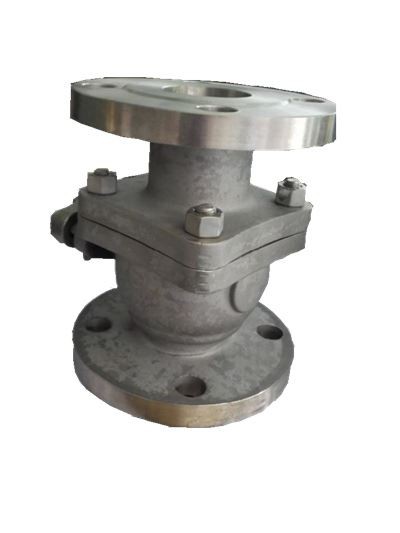Can Hastelloy Valve be used in water treatment plants?
Hey there! I'm a supplier of Hastelloy valves, and I often get asked if these valves can be used in water treatment plants. Well, let's dive right into it and find out.
First off, let's talk a bit about Hastelloy. It's a family of nickel - based alloys known for their excellent corrosion resistance. These alloys can handle a wide range of aggressive chemicals and harsh environments, which makes them a top choice in many industrial applications.
In water treatment plants, there are various processes involved, and each comes with its own set of challenges. Water can contain different impurities like acids, alkalis, salts, and even some heavy metals. And depending on the source of the water - whether it's from a river, lake, or groundwater - the composition can vary significantly.
One of the key factors in water treatment is corrosion. If valves in the plant start to corrode, it can lead to leaks, reduced efficiency, and even pose a risk to the overall safety of the operation. That's where Hastelloy valves come in.
Hastelloy alloys, such as Hastelloy C - 276, are highly resistant to pitting and crevice corrosion. In water treatment, where the water might have a high chloride content (common in seawater or some industrial wastewaters), this resistance is crucial. Chloride ions can cause rapid corrosion in many metals, but Hastelloy can stand up to them pretty well.
Another aspect is the presence of oxidizing agents. In some water treatment processes, chemicals like chlorine or ozone are used to disinfect the water. These oxidizing agents can be quite aggressive to many materials. Hastelloy has good resistance to oxidation, which means it can maintain its integrity even when in contact with these chemicals over long periods.
Let's look at some specific applications in water treatment plants.


-
Desalination: In desalination plants, seawater is processed to remove salt and other impurities to make it suitable for drinking or industrial use. The seawater has a high salt content, and the desalination process often involves high - pressure and high - temperature conditions. Hastelloy valves can handle these harsh conditions due to their high strength and corrosion resistance. They can be used in the intake systems, where the seawater is first brought into the plant, as well as in the reverse osmosis or distillation units.
-
Chemical dosing systems: Water treatment plants use various chemicals to adjust the pH, remove contaminants, and disinfect the water. These chemicals can be highly corrosive. Hastelloy valves are ideal for controlling the flow of these chemicals. For example, in a system that doses sulfuric acid to adjust the pH of the water, a Hastelloy valve can ensure that the acid is delivered accurately and safely without being corroded by the acid itself.
-
Wastewater treatment: Wastewater can contain a complex mixture of organic and inorganic substances. Some industrial wastewaters may also have high levels of heavy metals and toxic chemicals. Hastelloy valves can be used in the treatment of such wastewaters, especially in processes where the water needs to be treated with strong oxidizing agents or acids.
However, it's not all rosy. Hastelloy valves do come with a higher cost compared to some other types of valves. The raw materials for Hastelloy are expensive, and the manufacturing process is also more complex. But when you consider the long - term benefits in terms of reduced maintenance, fewer replacements, and increased reliability, the investment can be well worth it.
Now, there are other valve materials available for water treatment plants too. For example, you might come across Zirconium Valve. Zirconium valves also have good corrosion resistance, especially in certain acidic environments. They can be a good alternative in some specific water treatment applications where the chemical composition of the water is more acidic and less chloride - rich.
Titanium Valve is another option. Titanium has excellent corrosion resistance in many oxidizing environments and is lightweight. It can be used in applications where weight is a concern, such as in some mobile water treatment units.
Monel Valve is also a popular choice. Monel is a nickel - copper alloy that has good resistance to both seawater and many non - oxidizing acids. It can be used in applications where the water has a relatively lower chloride content and more copper - friendly conditions.
So, to answer the question, yes, Hastelloy valves can definitely be used in water treatment plants. They offer a high level of corrosion resistance, which is essential in the harsh and variable environments found in these plants. Whether it's desalination, chemical dosing, or wastewater treatment, Hastelloy valves can play a vital role in ensuring the smooth and efficient operation of the plant.
If you're in the water treatment industry and are looking for reliable valves, I'd highly recommend considering Hastelloy valves. They might cost a bit more upfront, but the long - term savings and performance benefits are significant. If you're interested in learning more about our Hastelloy valve products or need help in choosing the right valve for your specific water treatment application, feel free to reach out. We can have a detailed discussion about your requirements and see how our valves can fit into your system.
References
- "Corrosion Resistance of Nickel - Based Alloys in Water Treatment Environments" - Journal of Industrial Corrosion
- "Materials Selection for Water Treatment Plant Components" - Water Treatment Engineering Handbook